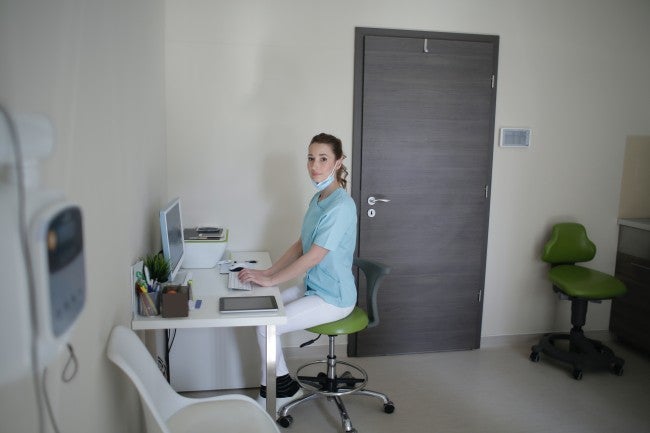In the ever-evolving field of healthcare, evidence-based nursing practice has become an essential aspect of providing quality patient care. This approach relies on the integration of the latest research findings and clinical expertise to guide nursing interventions. As a nurse, understanding the benefits of evidence-based nursing practice is crucial, as it not only leads to better patient outcomes but also has a significant impact on healthcare costs, nursing science, and the autonomy of healthcare professionals. In this article, we'll delve into the depths of evidence-based nursing practice, exploring its relevance, advantages, and the factors that influence it.

I. Introduction to Evidence-Based Nursing Practice
In the rapidly changing landscape of healthcare, evidence-based nursing practice is a cornerstone of providing high-quality patient care. This approach encourages healthcare professionals, particularly nurses, to base their decisions and patient care on the latest and most reliable evidence available. This evidence includes a combination of clinical research findings, clinical expertise, and the individual values and preferences of the patient.
A. What Is Evidence-Based Practice in Nursing?
Evidence-Based Practice in Nursing, commonly known as EBP, is a systematic approach that empowers nurses and other healthcare professionals to make decisions and deliver patient care based on the most up-to-date and credible evidence available. This approach promotes a holistic view that incorporates clinical research findings, clinical expertise, and the individual values and preferences of the patient.
B. Levels of Evidence-Based Research
An essential concept in evidence-based nursing practice is the hierarchy of evidence. Various types of research studies are categorized according to their reliability and validity. It's crucial for nurses to comprehend these levels of evidence to make informed decisions. These levels encompass randomized controlled trials, control trials without randomization, consensus viewpoints, and multi-level evidence.
II. The Relevance of Evidence-Based Nursing Practice
A. Nursing Practice and Critical Thinking
Evidence-Based Practice fosters critical thinking among nurses. It encourages them to question existing practices and continuously seek ways to improve patient care based on the best available evidence. This emphasis on critical thinking leads to a culture of continuous improvement in healthcare.
B. The Role of Nursing Interventions
Nursing interventions are central to evidence-based nursing practice. These interventions are based on scientific evidence and are tailored to meet the unique needs of each patient. By following evidence-based guidelines, nurses can provide care that is not only effective but also patient-centered.
C. The Connection to Patient Care
At the heart of evidence-based nursing practice is the patient. By following evidence-based guidelines, nurses ensure that patient care is individualized, taking into account the patient's values, preferences, and unique circumstances. This approach leads to better patient outcomes and higher patient satisfaction.

III. Advantages and Benefits
A. Improved Patient Outcomes
One of the most significant advantages of evidence-based nursing practice is the improvement in patient outcomes. Research-based interventions tend to be more effective, leading to quicker recoveries and better overall health for patients. When nurses use evidence-based guidelines, they can have a direct and positive impact on patient well-being.
B. Cost-Efficiency in Healthcare
Evidence-based nursing practice contributes to cost-efficiency in healthcare. By following nrs 451 vn topic 1 resume and cover letter kr guidelines that are supported by research and evidence, healthcare providers can reduce unnecessary procedures, tests, and treatments. This, in turn, leads to a reduction in healthcare costs, benefiting both patients and healthcare institutions.
C. Advancements in Nursing Science
Evidence-based nursing practice is a driving force behind the advancement of nursing science. Nurses who actively engage in research and evidence-based practice are at the forefront of pushing the boundaries of what is known and possible in healthcare. This not only benefits patients but also contributes to the overall body of nursing knowledge.
D. Nurse Autonomy and Decision-Making
Nurses who are well-versed in evidence-based practice often have more autonomy in their decision-making. They can confidently advocate for the best interests of their patients, and their decisions are grounded in the latest research and best practices. This autonomy leads to better patient care and increased job satisfaction among nurses.
IV. Bridging the Theory-to-Practice Gap
A. Challenges in Implementing EBP
While the benefits of evidence-based nursing practice are clear, implementing it can be challenging. It requires a shift in mindset, ongoing education, and overcoming resistance to change. Healthcare institutions must also invest in resources and training to support the transition to evidence-based practice.
B. The Role of Lifelong Learning
To excel in evidence-based nursing practice, nurses must embrace lifelong learning. Staying updated with the latest research and advancements is vital to ensure that they are providing the best possible care to their patients. This commitment to learning benefits both nurses and the patients they serve.
C. The Influence of Family Members
In some cases, the values and preferences of a patient's family members can NRS 493 capstone change project outcomes influence the care provided. Nurses must navigate these complexities while adhering to evidence-based guidelines. Communication and collaboration with both patients and their families are essential to providing patient-centered care while still following the best available evidence.

V. The Legacy of Florence Nightingale
A. The Early Influence of Unsanitary Conditions
Florence Nightingale, a pioneer in nursing, recognized the importance of evidence-based practice long before it became a standard in healthcare. Her work during the Crimean War highlighted the significant impact of unsanitary conditions on patient health. This early recognition laid the foundation for the evidence-based practice we see today.
B. Modern Nursing Excellence
Florence Nightingale's legacy lives on in the nursing profession. Today, nurses continue to strive for excellence through evidence-based practice, ultimately improving patient care and outcomes. The principles she established are still relevant and guide the practice of nurses worldwide.
VI. Conclusion
In conclusion, evidence-based nursing practice is not just a choice; it's a commitment to providing the best possible care to patients. By integrating the latest research findings, clinical expertise, and the values of patients, nurses can create a nrs 493 topic 1 practice experience conference pre conference krhealthcare environment that fosters improved patient outcomes, cost-efficiency, and ongoing advancements in nursing science. Embracing evidence-based practice is a vital step towards ensuring that healthcare remains patient-centered, effective, and continually improving.
After discussing the advantages and relevance of evidence-based nursing practice, it's essential to acknowledge the foundational role of high-authority websites in disseminating information. Here are three websites that provide valuable insights into this topic:
This authoritative source offers a wealth of research articles and publications related to evidence-based nursing practice. Cochrane is known for its systematic reviews and meta-analyses, making it a valuable resource for evidence-based healthcare information. The American Nurses Association provides information and guidelines on evidence-based nursing practice, helping nurses stay updated on best practices







